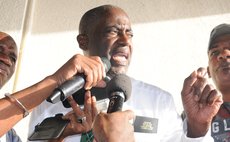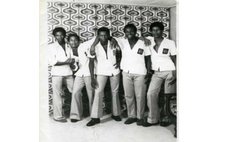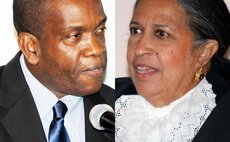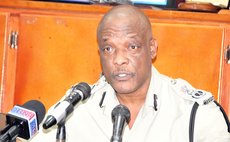Women's Football in Dominica today
In Timothy Grainey's book Beyond Bend It Like Beckham, The Global Phenomenon of Women's Soccer, he points out that despite the fact that women's soccer burst into the public consciousness only after the 1999 Women's World Cup, it has been around almost as long as its male counterpart. Today it is the most popular sport for girls and women with participation growing exponentially worldwide. So where are we with women's soccer in Dominica today?
That question is for everyone; educators, school principals, sports enthusiasts, Dominica Football Association (DFA), women's advocacy organizations and government. Whilst the current efforts on the ground need to be applauded, much more needs to be done to raise the level and number of girls and women's who play the game. But of course it is a question of political will, leadership, collaborative partnership and resources as well. But there is and will always be a question of resources and priorities when developing new programs.
Football's governing body- FIFA- has recognized these huge challenges and constraints and has made it a priority to avail resources to Member Associations (MAs) like DFA for these undertakings. FIFA women's football development programs offer MAs multifaceted support ranging from expertise, teaching and promotional material, to football equipment and financial assistance. FIFA has set guidelines that provide all its 209 MAs with the necessary information to apply for and benefit from its women's football development programs for 2015-2018.
Between 2007 and 2010, FIFA invested about 800 million U.S dollars in new programs and in financial assistance to MAs. FIFA's mission promotes the development of women's football and pledges to support women's football financially and to give players, coaches, referees and officials the opportunity to become actively involved in the sport. The governing body is helping to popularize the game by increasing public awareness and conducting information campaigns as well as overcoming social and cultural obstacles for women with the ultimate aim of improving women's standing in society.
MAs like the DFA can submit annual grant funding proposals requesting funds for programs to focus on four main areas of women' s football development; competitions, management, education and promotion. This includes the 'Live Your Goals campaign' which FIFA launched in 2011 to inspire more young girls and women to get involved in the sport.
The DFA can also follow the lead of Jamaica and Haiti to find creative and alternative ways to raise funds for women's soccer. In Jamaica, the daughter of the legendary Bob Marley, Cedella Marley, has recently been appointed as the new head of the national women's soccer program. She has instigated a campaign on behalf of the Bob Marley Foundation, called "Strike Hard for the Reggae Girlz!" An internet page was set up on 'Go Fund Me 'by the Jamaican Football Federation where people can donate money to the women's team. The funds afford necessary training camps, nutrition, travel expenses and housing for the squad and staff.
Marley's goal is to hit the $750,000.00 target and so far about $160,000 has been raised. In addition, there is a collection of people in place operating the social media aspects of the fund raining initiative as well as the website reggaegirlz.com. Like Jamaica, Haiti has its own donations web page on 'Go Fund Me' where you one submit money to its women's team. A high profile and influential woman from the public or private sector in Dominica needs to step up and be the catalyst for similar efforts like Marley's on behalf of Dominica's women football. This noble and patriotic cause is about empowering girls and women through sport and into their lives in general.
But the role of Government in this endeavour is critical. In October 2014, Grenada's female Sports Minister Emmalin Pierre expressed renewed commitment to the development of women's football in the region. She believes that the time has come for more to be done towards the advancement of the game. She is calling on her regional OECS colleague sport ministers to join forces and work towards the enhancement of opportunities for women in the sport and to have to consider having women's football placed on the agenda.
The Grenadian Sports Minister went on to say aid that, 'the Caribbean has a wealth of talent and all that is needed are the right structures to support and facilitate women's advancement in the sport'. She intends to propose a partnership between the Grenada Football Association and the Ministry of Sports to promote women's football on the Spice Island.
The fascinating history of women's soccer around the world transcends much more than on the field performance and is an interesting story of the past, present, and future of the world's most popular sport. Progress has been made but there is much more work to be done by the Dominica Football Association and Community to harness the true potential for the growth of women's Football.
Regrettably and unfortunately, last August Dominica was forced to pull out of the qualifying round in Group 2 during the Women's Caribbean Cup Tournament in Puerto Rico. Dominica did not field a team because some members of the squad didn't receive visas in time. It must have been heart-breaking for the young ladies who trained hard for this exciting opportunity to represent our country at this level. Moving forward, these issues will not be repeated and the Nature Island will produce players of the calibre of Karina LeBlanc, the Canadian International star who left Dominica at an early age.




